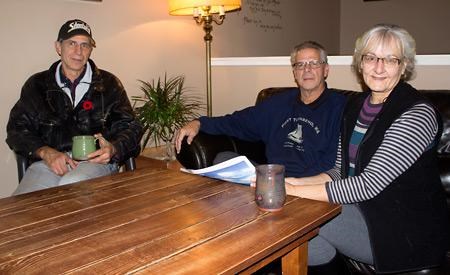Though an increasing number of Canada’s largest demographic will soon be over the age of 65, don’t call them seniors, says a boomer lifestyle consultant based in Powell River.
“Seniors are our parents,” said Rita Boehler-Wiebe, 56, who has been thinking about what the next major impact her generation is going to have on the country. There is not much room for debate about the social impact the demographic has already had.
“I’m talking primarily to boomers,” she said.
Or zoomers, or grey-haired hikers, bikers and kayakers.
So many children were born between the years 1946 and 1964, not only in Canada but also globally, that a generational name was coined from the veritable baby boom.
Children born between those years, depending on whose statistics are read, make up between 23 to 30 per cent of Canada’s current population, she said.
They are the largest generational group and the most wealthy in our history, she added.
Boehler-Wiebe is an architect who studied in Canada but left to work in Germany and the United Kingdom. She moved back to Canada and practiced across the country for a number of years before returning to BC to meet her husband Jack and work independently. They moved to Powell River from Mission in 2011.
Boomers were the rabble-rousers of the 1960s who questioned authority and expanded their consciousness, and later became the country’s solid home-buying middle class. Now, with their homes paid off and their children having left home, many are wondering what options exist, she said.
The oldest of the boomer generation, born in 1946, turned 65 years old in 2012.
“One of the most difficult challenges boomers will face is changing where and how they live as they age,” she said.
She calls it her “life’s work,” a second career in boomer lifestyle consulting and what she is trying to do is start a community conversation about what Powell River can do to prepare for the approaching grey tsunami.
According to data from Statistics Canada in 2011, Powell River is in the top 10 of communities across the country having the highest proportions of population aged 65 years and older. Statistics Canada recorded 22.8 per cent or 4,650 persons met that criteria during its 2011 census of population. Powell River’s average median age is 50.6 years old compared to BC’s 41.9 years old. The demographic data also showed an increasing trend in the coming years with aging boomers.
And many younger Canadians are worried about the financial impact of having to support an aging population with fewer tax dollars.
Boehler-Wiebe said she thinks to compensate, pension plans will have to change from ones that guarantee a certain amount of money per month, to ones that pay what can be afforded.
And with health care costing the government more, she foresees a push to keep boomers in their homes and as independent as possible.
“They want them to stay home and not be responsible for assisted living or even nursing homes,” she said. “Boomers have to come up with ways of doing things ourselves because also we won’t be able to afford it.”
Powell River currently has Kiwanis Village Manor which provides lower cost assisted living for seniors, but space is limited.
Private assisted living facilities in the Lower Mainland can cost thousands of dollars per month per person.
In January, Boehler-Wiebe is presenting a workshop at Mount Royal University entitled, “How then shall we live?” She plans to also offer it in Powell River.
“At about 70 years old, all of a sudden, you’re sitting in your 3,000 square foot house, that you’ve put a good penny into with renovations, and now you’ve got to sell it, but your kids can’t afford it,” she said.
She also said that by 70 years old, a third of boomers will not be physically able to maintain a home of that size. But she also has some ideas about what some solutions may look like.
“Boomers are advised to embrace old age early and begin to plan for it, so they can be the architects of their senior years, rather than having unhappy transitions forced upon them,” she said.
Boehler-Wiebe added that there are alternatives available, but boomers need to be creative in order to have their needs met in later life, unless money is not an obstacle.
Her workshops will not give easy answers, she said, but they will get participants thinking about different ideas on how they could live with others in co-habitation, co-op housing or even small cluster living.
She’s identified four key areas that she thinks boomers will have to accept to be able to live well in old age. “If you have money there’s no problem,” she said.
Despite its difficulty, she said one of the first things boomers will have to accept is that they will not be able to afford to live alone.
“Boomers don’t like to hear that, though,” she said. “We’re all loners. We won’t even share lawnmowers.”
Boehler-Wiebe said that boomers who have seen the impact of loneliness and isolation that their parents went through as they aged understand why social contact is crucial.
“We have to learn how to share,” she said. “And learn how to be a nice person to get along with others.”
She also emphasized the importance of downsizing possessions. “You have to get rid of your stuff,” she added.
Powell River, because of its size, aging population and less expensive real estate, is a good place to start this conversation on the transition, she said.
What’s important is that boomers start thinking about how they want to live and what they need and what they can live without, she added.
Her Powell River workshop will be held Saturday, November 22 at St. David and St. Paul Anglican Church in Townsite. Tickets cost $20 each. For more information readers can contact Boehler-Wiebe at [email protected].



